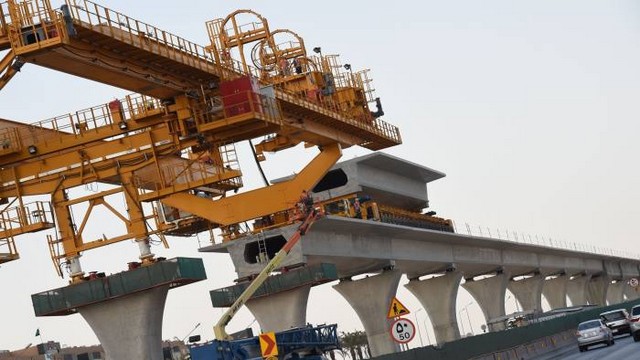By Simeon Kerr
Saudi Arabia is planning to cull billions of dollars of projects as part of its latest cost-cutting measures to narrow a gaping budget deficit and balance the books by 2020.
The government, which has been forced to slash spending because of low oil prices, has awarded a contract to PwC, the consultancy group, to identify between SR50bn and SR75bn ($13bn-$20bn) in savings, say people aware of the matter. The focus of the cuts will be on capital expenditure, such as infrastructure projects, as Riyadh hopes to avoid any politically sensitive spending reductions after austerity measures last year triggered an outburst of public discontent.
“PwC will be doing big number crunching, lots of accountancy work trying to understand the liabilities the ministries already have, who is doing what, and where the cuts can most easily be made,” said one executive aware of the contract. PwC and the government declined to comment. The project review, which will span ministries such as transport, health and municipal services, is another blow to construction companies and other businesses that have come under financial strain since Riyadh began tightening its belt after oil prices fell in mid-2014. The budget deficit declined from a record SR366bn in 2015 to SR297bn last year.
State spending, funded by oil revenues, is the main driver of the kingdom’s economy. But the government has halted or restructured hundreds of projects across the kingdom over the past two years. It has also delayed payments to companies, exacerbating the problems in the private sector and helping drive non-oil growth to less than 1 per cent last year, its lowest level in years. The finance ministry has pledged to finalise SR105bn in late payments by February. The council for economic and development affairs, the kingdom’s powerful economic decision-making body, also said this week that it would set up an electronic platform to boost transparency surrounding outstanding payments. The council is chaired by Mohammed bin Salman, the powerful deputy crown prince who is the driving force behind an ambitious transformation plan that is intended to reduce Saudi Arabia’s dependence on oil.
Billions of dollars have started to flow to contractors that have had to wait months, or even years, to receive payment for goods and services delivered to the public sector. But some contractors complain that they are being forced to take large discounts on their invoices. Major construction companies, such as Saudi Binladin and Saudi Oger, owe local and foreign banks tens of billions of dollars, projecting their woes on to the financial system. Cuts to the Saudi project pipeline have been echoed across oil-rich Gulf states, deepening the pain for regional contracting companies that are desperate for new work to make up for cancelled and delayed projects.
The value of infrastructure contracts awarded in the Gulf last year fell 44 per cent to $100bn, compared with $178bn in 2015, according to data from the Middle East Economic Digest. That compares to a high of $186bn in 2014. Still, while the contactors’ order books have declined sharply, management consultants have been hoovering up work as Prince Mohammed marshals help to implement his vision for economic change.
PwC is one of many consultants, including McKinsey, Boston Consulting Group and Oliver Wyman, that have won large contracts in the kingdom. The consultants’ role in the reforms has sparked some public anger over the pace of change impacting the Saudi public, such as increases to energy prices and cuts to public sector salaries. Foreign advisers, especially McKinsey which is most associated with Prince Mohammed’s plans, have become lightning rods for criticism in a country where open dissent can raise the risk of arrest.
12 January 2017

